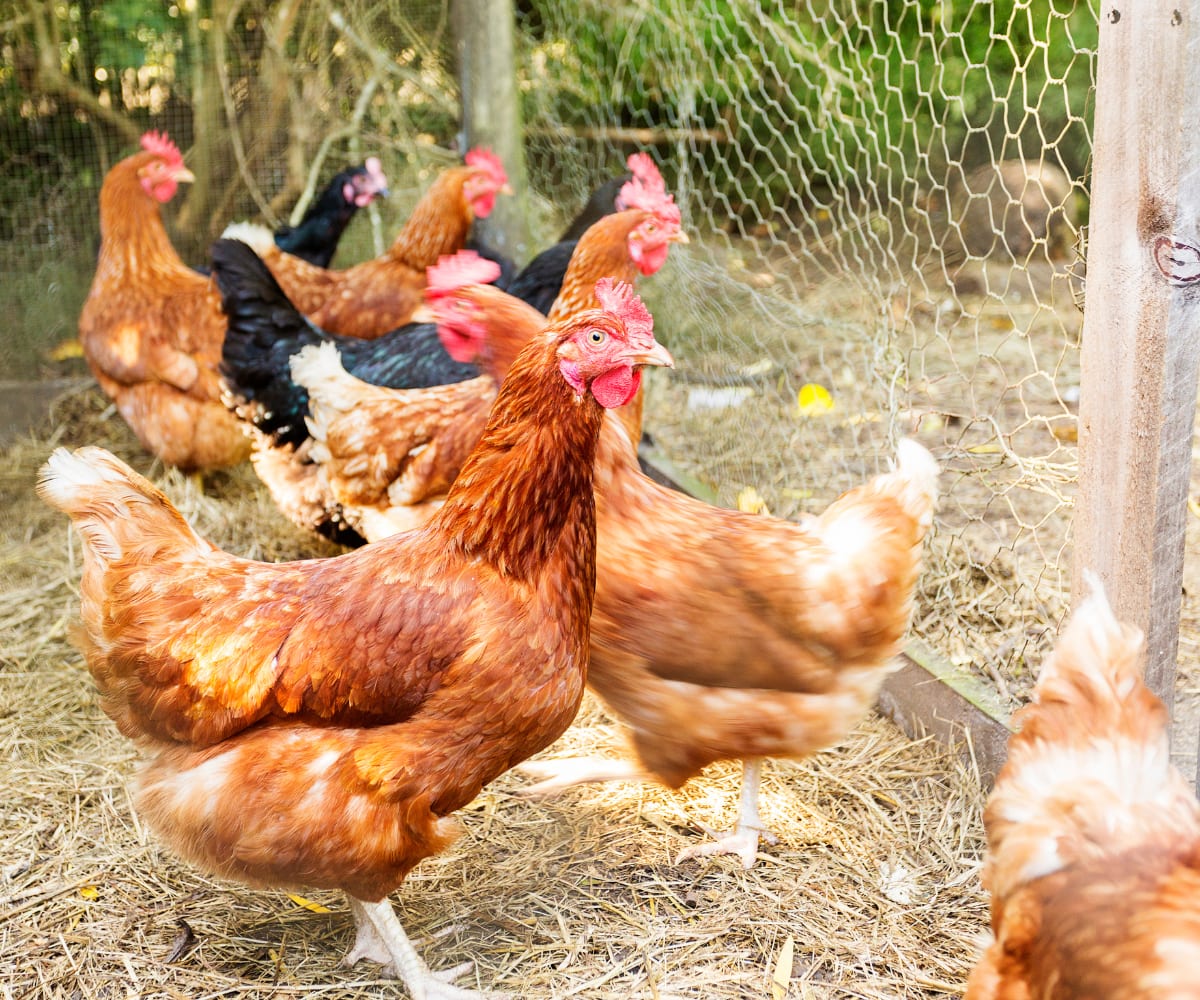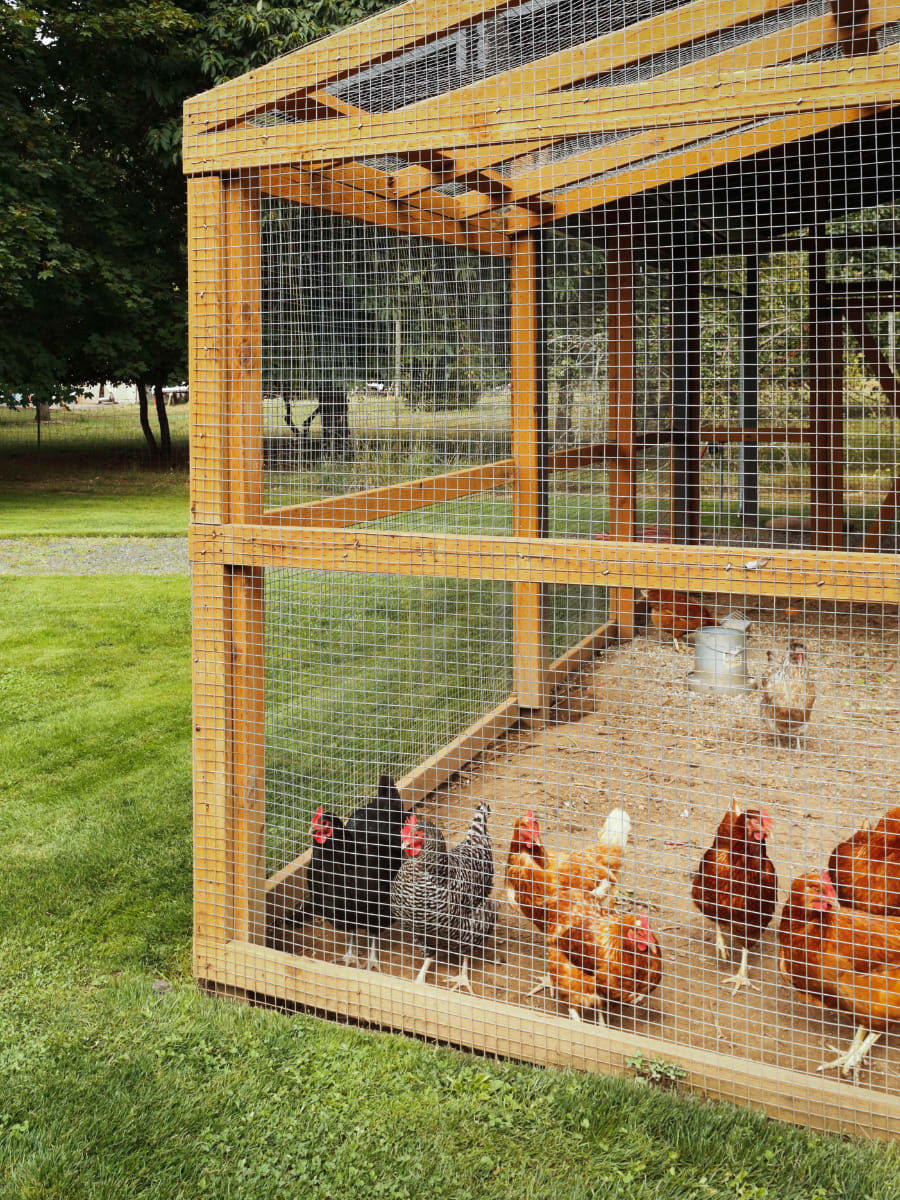At Southland Organics, we make natural solutions to natural problems—like helping backyard chickens recover from nuisances like parasites. Internal parasites that feed on chickens, such as roundworms and tapeworms, can cause extreme stress and damage to your flock’s health. These parasites change the function of the gut, affecting feed efficiency and potentially causing issues like intestinal blockages. They can lead to symptoms such as diarrhea, depression, reduced weight gain, anemia and even worms in your eggs.
All About Parasites

Let’s go over some basics on parasites so you know what to look out for in your flock. External parasites, such as the northern fowl mite, live on chickens, whereas internal parasites, such as the roundworm, live inside chickens. We're going to focus on internal parasites for now, but check out our blog on chicken mites to learn more about external parasites and how to get rid of them.
Intestinal species are considered the most damaging type of parasite to poultry. These infections cause gut issues, like reduced feed efficiency and diarrhea. One common infection in chickens is called helminthiasis, which is an infection with roundworms, tapeworms or flatworms. Capillary, or thread worms, are other helminths. They can infect the crop and esophagus, causing thickening and inflammation of the mucus membrane.
But worms aren't just a gut issue! Young birds are most severely affected by gapeworms, which infect the respiratory system. Symptoms include gasping, choking, shaking of the head, inanition, emaciation and suffocation, so if you notice any of these in your younger birds, get them checked for gapeworms.
Unfortunately, it’s not just the parasites themselves you have to look out for. Parasites can carry other invaders, like protozoa. One example is cecal worms. These parasites are harmless to chickens, but they carry an organism that causes blackhead disease in turkeys. This is one of the reasons it’s not recommended to house chickens and turkeys together—your chickens could accidentally give a life-threatening disease to the turkeys.
Parasite Life Cycles
Parasites can have pretty complex life cycles, but we usually categorize them as direct or indirect.
Direct Life Cycles
Parasites with a direct life cycle can infect the host and be transmitted from bird to bird as larvae or infected eggs. One example is a common helminth, Ascaridia galli. These parasite eggs can be deposited in bird feces and become infective in 10–12 days. If the eggs are ingested by your birds, they hatch inside the bird, begin to feed on them internally and can cause numerous problems, sometimes as bad as hemorrhages. If nothing is done to remove them, these eggs can live in soil for up to two years. This is why keeping your litter clean is so important (more on that later!).
Indirect Life Cycles
Parasites with indirect life cycles require an intermediate host to grow into their infective stage. Gapeworms can have an indirect life cycle because their larvae can live on an intermediate host, like a snail, slug or earthworm, for years. If your chicken eats a host with larvae on it, then they will become infected.
How to Prevent and Treat Parasites in Chickens

These parasites sound pretty bad, right? The best way to handle chicken parasites is to prevent them. Prevention is the best treatment! Here are seven ways to prevent parasites in your chicken coop:
-
Keep your litter dry. Worm eggs thrive in wet areas. Dry litter is less likely to breed parasite populations.
-
Keep your coop clean. Clean coops make healthy birds!
-
Sanitize your coop whenever you introduce new birds. This way, you can get rid of any infections that may have been left over from the last flock.
-
Avoid overcrowding. A crowded coop is harder to keep clean and exposes more birds to parasites.
-
Keep wild birds away from your coop. Wild birds and their droppings are common transmitters of parasites, bacteria and viruses.
-
Establish effective drainage in your coop. This will help reduce the buildup of feces.
-
Use an insecticide to keep disease-carrying pests out of your coop. We recommend Desecticide, which is an essential oil-based spray that is safe to spray in coops and directly on birds.
Recovering from Infection

Symptoms of a parasite infection can be hard on chickens. According to Dr. Jacquie Jacob, clinical signs of worm infestations include "unthriftiness, poor growth and feed conversion, decreased egg production, and, in severe cases, death." If you suspect your chickens may have worms, you can get a worm egg count kit to send off a feces sample for lab testing. Once adult worms have invaded the intestinal tract or other areas, there’s not much you can do to get rid of them besides administer anthelmintics, which are medications to worm chickens.
What chicken keepers can do is help the flock recover from a parasite infection. Encouraging intestinal health can help clear mucus accumulation and restore the absorptive abilities of the intestine. Apple cider vinegar like our Mother Load is great for this!
The diarrhea caused by parasites leads to intense dehydration, which causes its own set of issues. When dehydrated, it's important to provide laying hens with electrolyte support and a vitamin. For this, we recommend Hen Helper, our probiotic, and Catalyst, our multivitamin designed for poultry. Available in our Backyard Poultry Bundle, just add these supplements to your infected birds' drinking water to help them recover and boost their overall health!
Learn more and purchase our Backyard Poultry Bundle.
Contact Us
If you have any questions, contact us at success@southlandorganics.com or 800-608-3755. Be sure to subscribe to our YouTube channel for more information on raising happy, healthy chickens. Until next time, happy chicken raising!
Sources
Internal Parasites of Poultry, University of Kentucky Extension
Helminthiasis in Poultry, Merck Manual
Internal Parasites in Chickens, University of New Hampshire Extension






